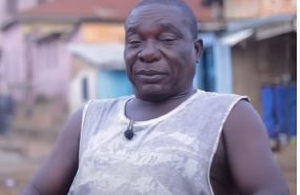Business News of Wednesday, 2 February 2011
Source: GNA
UK think-tank asks World Economic Forum to be pro-Africa
Accra, Feb. 2, GNA - The Council for Afrika International, a think-thank based in the UK has observed that the World Economic Forum [WEF= ] risks being a talking shop unless Davos 2011 tackle the fundamental undercurrents of global recession. A statement issued by Dr Koku Adomdza, President of the Council and copied to the Ghana News Agency in Accra said for the past 40 years, the well-connected WEF had been part of the edifice of the global economic orde= r under which Africa over a period of time recorded an annual $1.06 Trillion frittered out of the Continent.
It said a number of burning significant issues that the Council was putting across to the international community was the obvious non-recognition and un-acknowledgement of the contributions by Africa acros= s the world to global wealth creation. "The World Economic Forum has been in existence since 1971 in Geneva= , some 40 years ago=85 "It is critical that leaders meeting in Davos show exceptional leadership by definition, by arriving at pro-people decisions that are huma= n rights-oriented, to begin to regain the confidence of the global citizenship, who the locus of the mandate for political power are. "Needless to stress is the fact that without global citizens, there would be no world leaders. There must be clarity about the fact that global leaders are accountable to global citizens, the source of their power and not themselves," the statement said.
It said: 93The 21st Century ushered in a new era of internet empowerment, backed by greater citizenship interaction as a result of globa= l migration trends, where the African population are very much in the know of the quality of lives obtainable in other parts of the world. This awareness is rightly emboldening the African people to demand economic prosperity and justice, which were promised as logical outcomes out of the attainment of political independence some half a century ago." The statement said non-fulfilment of the promises of economic prosperity and justice had led hundreds of thousands to their death through needless abject poverty, concurrent with contrasting concentration and display of excessive affluence by the ruling elite, completely at odds with the vision and dreams of the pioneers of African Liberation from colonialism.
"The realisation of a developed and industrialised Africa will not o= nly be of benefit to Africa and the African people, but also a stabilising factor on the African Continent and healthy for global civilisation. "A poverty-induced radicalised Africa in the 21st Century harbours t= he frightening prospect of rapidly transforming the continent into a possible hotbed of instability, with serious consequences for the world; and Davos must not be blinded by this potential. "We expect African leaders attending Davos, who have all experienced what abject poverty is, to effectively advocate on behalf of the long-suffering Africans who are the source of their mandate, to whom they must feel accountable and the African Continent which they symbolise. The world sees the images of Africa through African leaders 96 palatable or horrifying.
"Unfortunate signs of extreme insecurity and rising tension are creeping up on African societies at an alarming speed, as a result of the increasing impoverishment of the African Continent by the unfair global economic disorder. For instance, one finds that a phenomenon of gated-communities has mushroomed in some capitals of the African Continent obviously to protect the rising noveau-riche, from rapidly deteriorating socio-economic crises, unhealthy ever-widening gap between rich and poor from fear of increasing armed crime, not excluding robbery. The statement said: 93Gated communities are not something readily visible even in the capitals of far richer Global North, yet rampant in African capitals.
"While everyone has the right to self-protection, within the traditional context of Africa's open communities, gated communities are alien and clearly evident of deepening social mistrust, suspicion and reflective of seething undercurrents of instability. "We submit that the best protection in society is trusting social relations, propelled by maximised guarantee of citizenship rights. Anything less is unsustainable and indicative of a timing bomb, ready to erupt, once the people have had enough. "Whatever the outcomes of Davos, certain things are certain. By the end of the one week summit, many Africans would have lost yet more lives to the harsh multiple-effects of abject poverty. The clock for justice and economi= c prosperity in Africa in the 21st Century continues to tick away, and with these, the presenting opportunities available to the World Economic Summit in Davos. The statement said it was very much in the hands of the World Leaders at the beginning of the second decade of the 21st Century, to undertake strident measures capable of rapidly lifting Africa out of an unjustified, unjustifiable and atrocious doldrums of unpalatable economic Armageddon; which was not only unhealthy for Africa, but also risky for the world in general.










